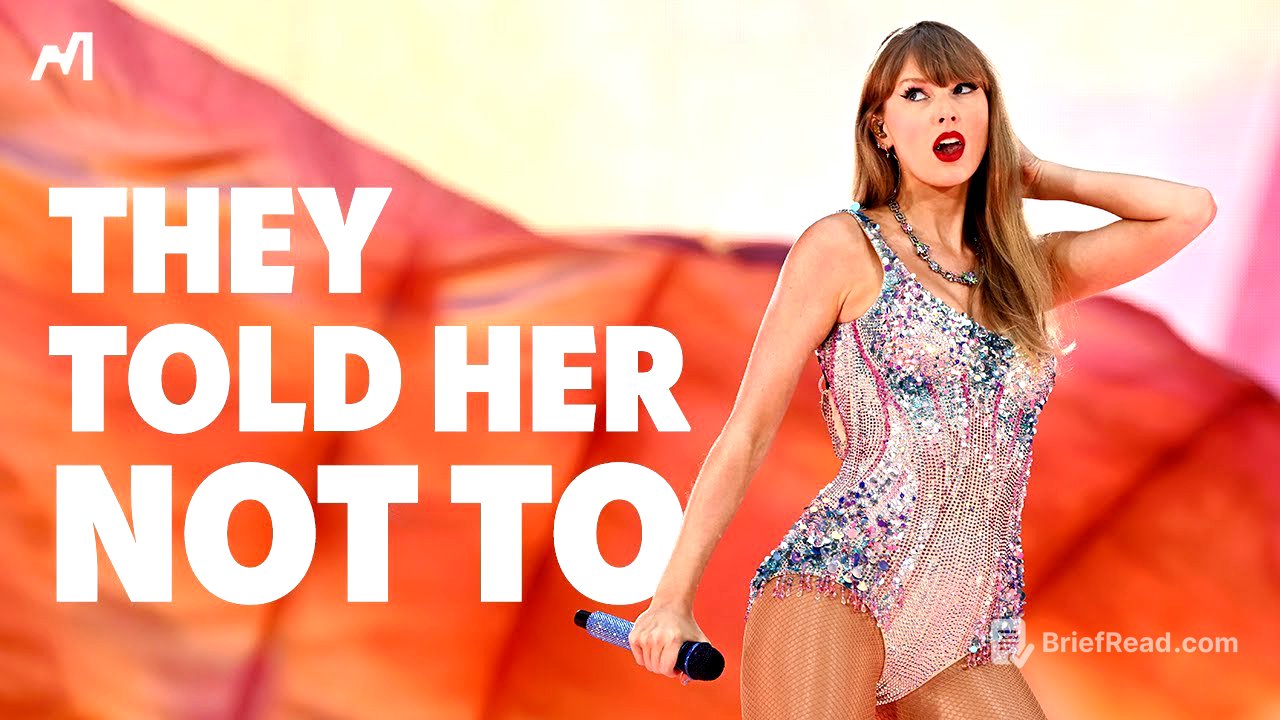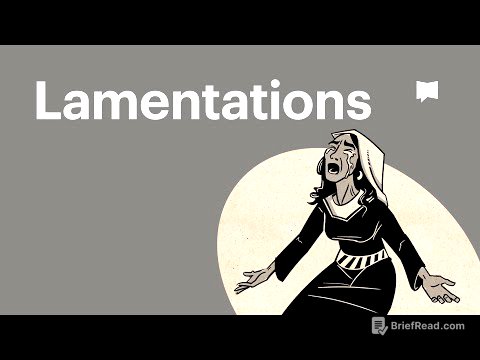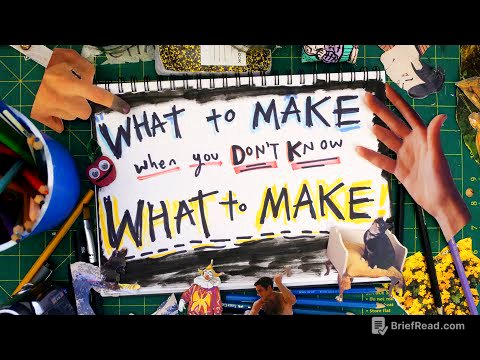TLDR;
This video explores the shift in the music industry from album sales to concerts as the primary revenue source for artists, triggered by the rise of digital music and streaming services. It examines the controversy surrounding Taylor Swift's "Eras Tour" ticket sales, highlighting the role of scalpers and bots in exploiting price controls. The video also discusses the potential breakup of Live Nation and Ticketmaster, questioning whether such a move would truly benefit artists and consumers.
- The music industry has shifted from album sales to concerts as the primary revenue source for artists.
- Taylor Swift's "Eras Tour" ticket sales controversy highlighted the role of scalpers and bots in exploiting price controls.
- The potential breakup of Live Nation and Ticketmaster is discussed, questioning whether such a move would truly benefit artists and consumers.
The Shift to Concerts [0:00]
The music industry's revenue model has drastically changed. Artists used to earn significantly from album sales, with a portion of each sale directly benefiting them. However, the advent of digital music platforms like Napster and later streaming services like Spotify disrupted this model. Fans embraced the convenience of streaming, which offered access to vast music libraries for a fixed price. This shift led artists to rely more on concerts as their primary source of income, causing a 175% increase in concert ticket prices.
The Eras Tour Ticket Meltdown [1:15]
Stadium tours are rare due to the limited number of artists who can fill such large venues consistently. Taylor Swift's "Eras Tour," comprising 152 shows over two years, generated immense demand, leading to a chaotic ticket sales process. On November 15, 2022, when tickets went on sale, Ticketmaster's servers were overwhelmed with billions of requests, leaving many fans frustrated. The high demand and limited availability of tickets created a lucrative opportunity for scalpers, who resold tickets at exorbitant prices, sometimes reaching thousands of dollars. Swift criticized Ticketmaster for the issues, but her decision to implement price controls also contributed to the problem.
The Most Expensive Painting in the World [4:00]
The video draws a parallel between the high demand for Taylor Swift tickets and the auction of Leonardo da Vinci's "Salvator Mundi," which sold for $450 million. The auction was a significant event in the art world, with intense bidding and a sense of reverence. Similarly, the demand for Swift's tickets was so high that fans were willing to pay exorbitant prices, highlighting the perceived value and exclusivity of the experience. Swift's attempt to control ticket prices was akin to trying to control the market value of a highly sought-after item.
The Profit Incentive [5:32]
Taylor Swift's decision to cap ticket prices, with the best seats at $449 and the worst at $49, was intended to make her concerts accessible to more fans. However, this price control created a significant profit incentive for scalpers. The real value of floor tickets was estimated to be in the thousands of dollars, making the potential profit from reselling tickets substantial. With approximately 1.5 million premium tickets available at $450, the resale market was worth between $3 and $5 billion, highlighting the scale of the opportunity for scalpers.
Bots and Scalping [7:31]
Scalpers use sophisticated methods, including bots, to bypass Ticketmaster's security measures and purchase large quantities of tickets. These bots are designed to mimic human behavior and can create thousands of accounts to acquire tickets. To avoid detection, scalpers use VPN services like All Out VPN, which routes their requests through millions of residential computers, making it appear as if the requests are coming from real people. All Out VPN offers its service for free, allowing them to route traffic through users' computers, which they then sell to companies like Prestige Entertainment. This allows scalpers to exploit the system and secure a significant number of tickets.
Price Controls [11:41]
Price controls, such as those implemented by Taylor Swift, often lead to unintended consequences. Examples include the black market for drugs, rent control in New York City, and Nixon's price cap on gas in the 1970s. These measures create opportunities for underground operations and incentivize people to find ways around the regulations. In the case of Swift's tour, the artificially low ticket prices created a massive profit incentive for scalpers, who resold tickets at much higher prices on secondary markets.
Will LiveNation and Ticketmaster Be Broken Up? [13:54]
The Department of Justice is considering breaking up Live Nation and Ticketmaster, arguing that their merger was illegal and has led to anti-competitive behavior. Live Nation owns or controls about 300 concert venues in North America, while Ticketmaster handles the ticketing for these venues and thousands of other events. However, when considering all live events, including sports and theater, Ticketmaster faces competition from companies like SeatGeek and AEG tickets. Moreover, Live Nation's concert business has never turned a profit, relying on Ticketmaster's revenue to stay afloat. Breaking up the companies could lead to higher concert prices and the cancellation of festivals.
Summary [17:03]
The tension between artists and Ticketmaster stems from the fact that artists do not profit from the resale of their tickets on secondary markets and dislike the fees charged by Ticketmaster. These fees increase the checkout price for fans, potentially reducing demand for tickets. While breaking up Live Nation and Ticketmaster is a possibility, it is unlikely, and the stock market reflects this sentiment. The core issue is the profit incentive created by price controls, which benefits scalpers at the expense of artists and fans.









